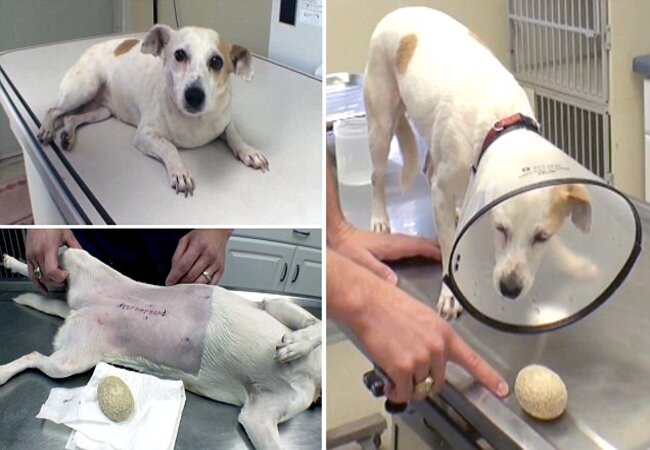Calcium Phosphate Urolithiasis in Dogs Veterinary Care & Prevention Guide 2025 🩺🐾

In this article
Calcium Phosphate Urolithiasis in Dogs Veterinary Care & Prevention Guide 2025 🩺🐾
By Dr. Duncan Houston BVSc
Hello! I’m Dr Duncan Houston BVSc, veterinarian and founder of Ask A Vet. Today we’re tackling a specific type of urinary stone: **calcium phosphate urolithiasis**. These stones, though less common, pose unique treatment challenges. In this 2025 guide, I'll explain causes, signs, diagnostics, removal strategies, prevention, and how Ask A Vet, support your pup’s urinary health journey. Let’s dive in! 💙🐶
1. What Is Calcium Phosphate Urolithiasis? 🤔
Calcium phosphate uroliths (hydroxyapatite) develop in the urinary tract, often in the bladder or kidney. They can occur alone or as layers on other stones. Unlike struvite, these do not respond to dissolution diets or medications—they’re hard and require physical removal.
2. Who Is at Risk & Why? ⚠️
- Diet and supplements: excessive calcium or vitamin D intake leads to hypercalciuria.
- Underlying diseases: kidney infections, hypercalcemia, hyperparathyroidism, Cushing’s disease.
- Urine pH imbalance: alkaline or overly neutral urine favors calcium phosphate formation.
- Breed predispositions: small breeds like Yorkshire Terriers, Mini Schnauzers, Cocker Spaniels.
3. Signs You Might Spot 🕵️♂️
- Increased frequency, difficulty, or pain during urination
- Blood in urine (hematuria), dribbling, or thin streams
- Abdominal discomfort, restlessness, urinating in unusual places
- Some dogs have no obvious signs; stones are found during exams
4. Diagnostic Approach 🔬
A thorough evaluation is essential:
4.1 Physical & Lab Tests
- Palpation can detect bladder stones
- Bloodwork (CBC, chemistry) to check calcium, kidney values
- Urinalysis: crystals, pH, infection, hematuria
4.2 Imaging
- X‑rays detect calcium-rich stones; contrast x-rays help too
- Ultrasound visualizes stone location and bladder wall condition
- Repeat imaging at 3–5 month intervals to catch recurrence early
5. How It's Treated 🛠️
No diet or meds dissolve calcium phosphate stones—physical removal is necessary.
5.1 Urohydropropulsion
- Catheter flushes small stones back into the bladder for natural passage
- Effective for stones small enough to pass
5.2 Minimally Invasive Lithotripsy
- Shock-wave (ESWL) or laser breaks the stones into passable fragments
- Advantages: less invasive, short recovery
5.3 Surgery
- Cystotomy—traditional bladder incision to remove stones
- Required when stones are too large or numerous for other methods
5.4 Post‑Removal Care
- Radiographs or ultrasound confirm full removal
- IV fluids, pain relief, and antibiotics if infection was present
6. Underlying Cause & Prevention 🌱
Prevention is key:
- Investigate and manage diseases like primary hyperparathyroidism or kidney disease
- Adjust diet—reduce calcium, vitamin D, phosphorus; increase water intake
- Use prescription urinary diets and maintain urine pH between 6.5–7.5
- Monitor serum calcium periodically
- Thiazide diuretics and potassium citrate may reduce risk in recurrent cases
- Schedule imaging every 3–6 months to catch new stones early
7. Living with a Stone-Prone Dog 🏡
- Always provide fresh water—use fountains, encourage wet food use
- Avoid high-mineral dog foods and unnecessary supplements
- Regular veterinary check-ups—urinalysis + imaging to monitor bladder health
8. How Ask A Vet💡
- Ask A Vet: Telehealth check-ins, diet reviews, stone symptom alerts.
9. When to Contact the Vet 🚨
- Straining to urinate, blood in urine, pain during urination
- Reduced urine output or blocked flow
- Sudden lethargy or loss of appetite—could signal kidney involvement
10. Final Thoughts 📝
Calcium phosphate stones in dogs are serious but manageable. Removal via urohydropropulsion, lithotripsy, or surgery followed by underlying disease control and dietary management can prevent recurrence. Regular monitoring and hydration are essential. With support from Ask A Vet, your pup can enjoy a healthier urinary life. 🐾💙
If you suspect a urinary stone, book telehealth consults at AskAVet.com and download our app for ongoing support and reminders. 🌟






